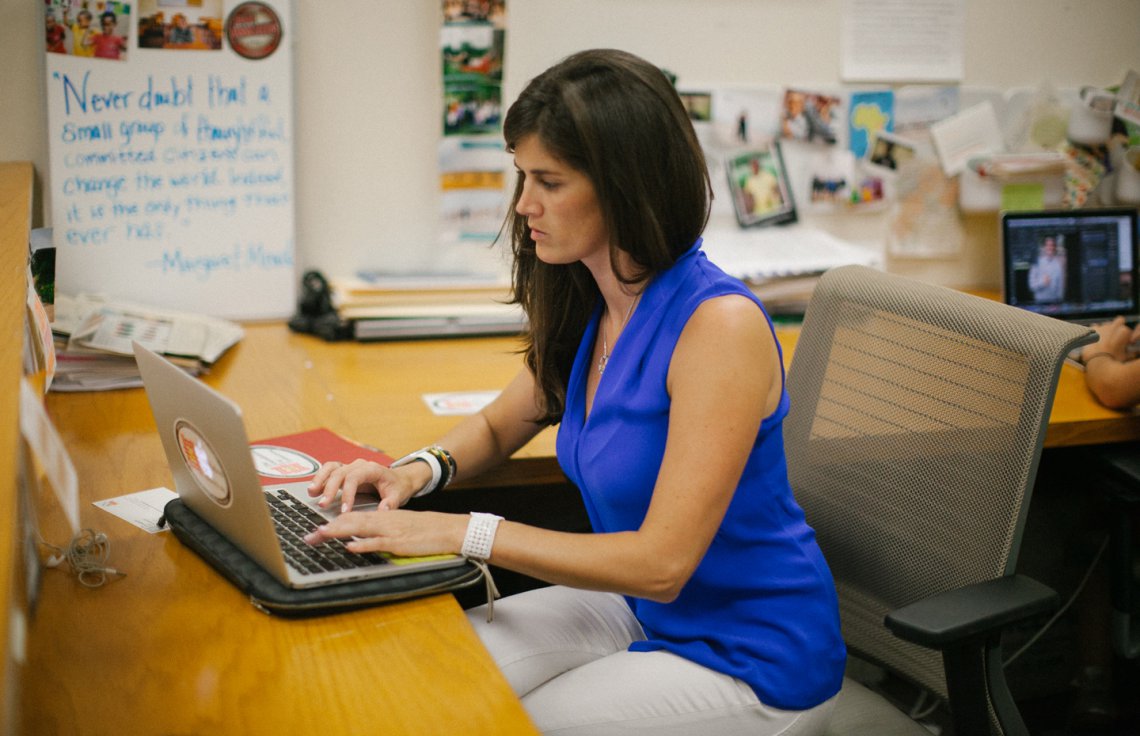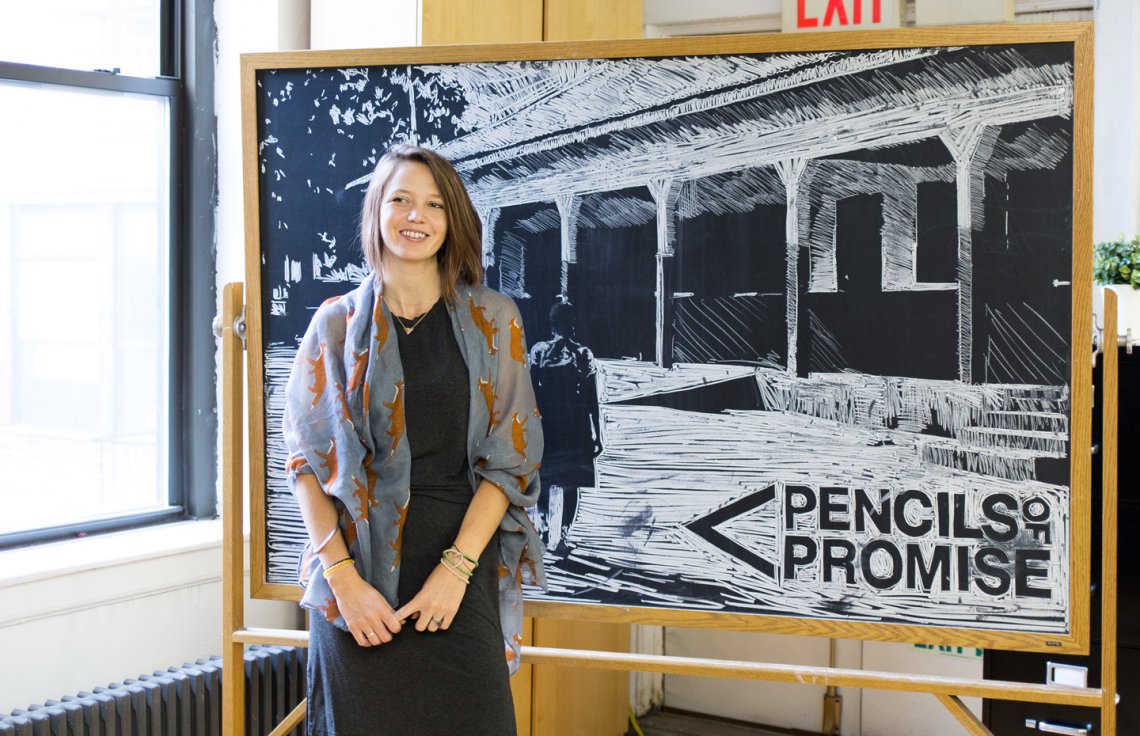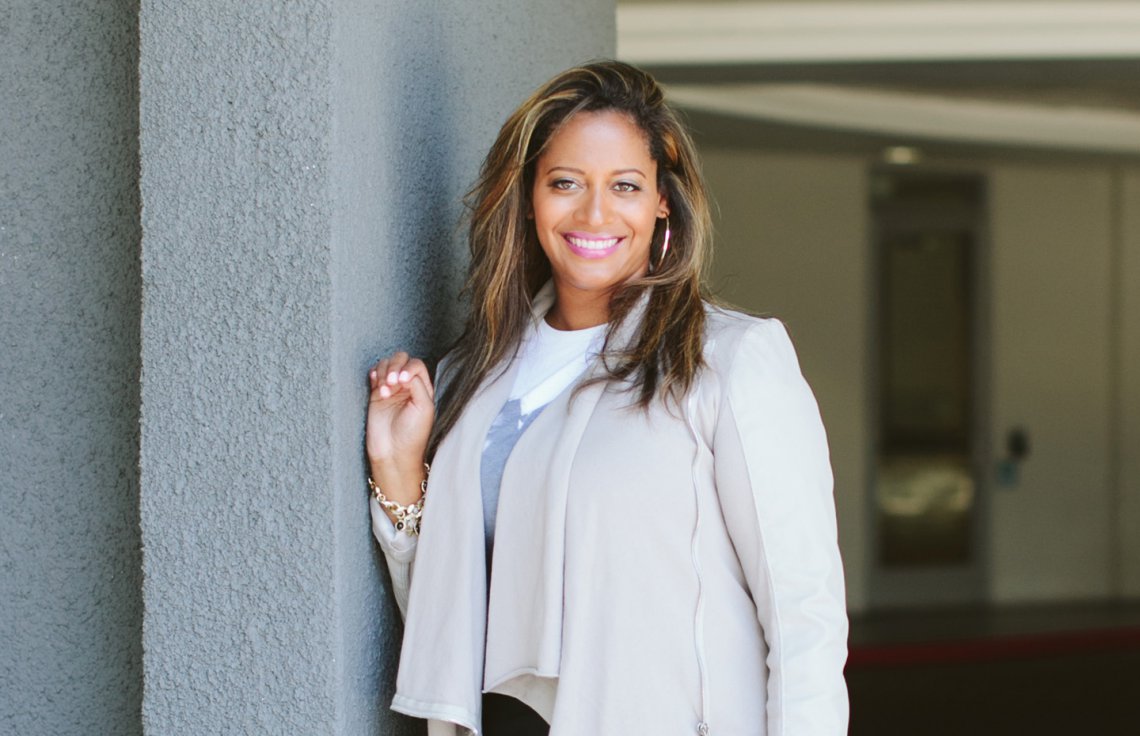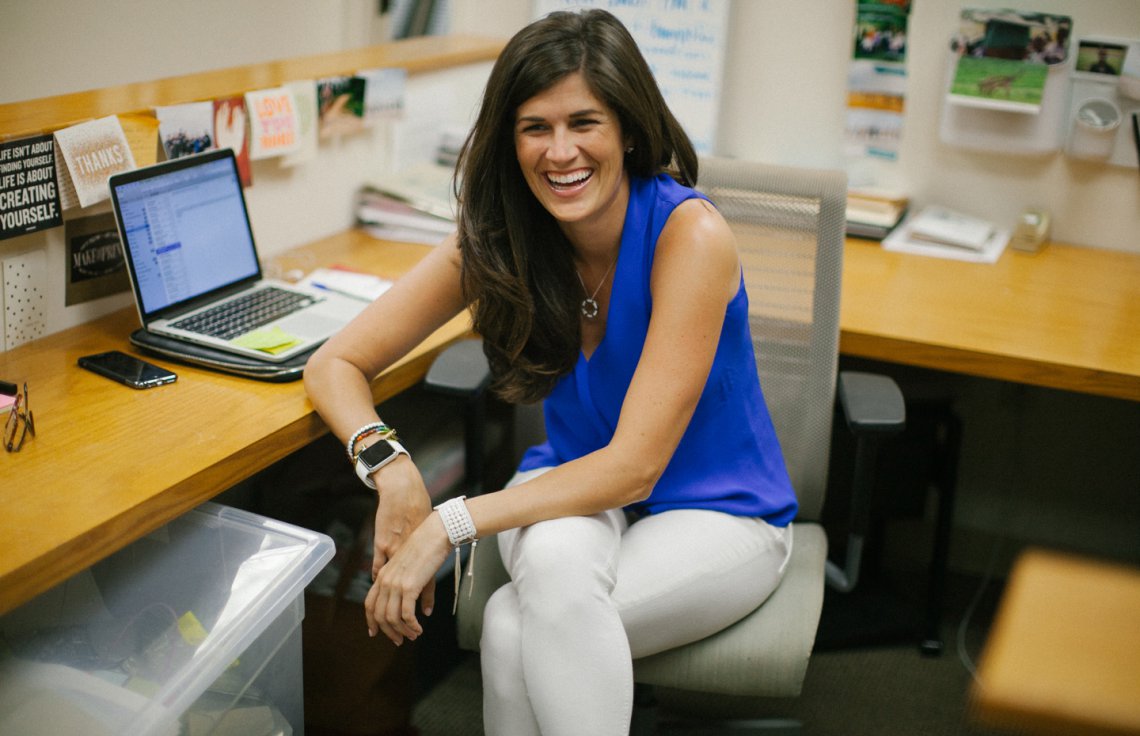Today's Contessa started out in an unconventional way- out of discomfort and injustice. During dissertation research in Tanzania, Meghann Gunderman's visit to an orphanage sparked a movement. What started as an effort to provide boarding school education for 4-year-old triplets quickly snowballed into The Foundation for Tomorrow, an organization that strives to provide education for children around the globe. Since its early days, Meghann’s fight against educational inequality has blossomed to include life-skills lessons and educator support beyond the classroom.
With entrepreneurial roots and big business experience under her belt, Meghann set about rallying donors and engaging on-the-ground support. Although some may see nonprofit fundraising as constantly campaigning for money, for Meghann it gives her "the opportunity to see into the hearts of the people who invest in our work." Meghann is the perfect example of how our experiences can alter entire career paths. Although the journey isn't easy, Meghann sums up her motivation well.
"I was really uncomfortable with the education inequality I saw in Africa. The difference in educational opportunity in East Africa versus what we see here in the West didn’t sit well with me, so I acted and did something about it."
Copy: Jessie Hunter
Photos: Haley George (at the office) & Image is Found (in Tanzania)
Her Starting Point
Tell us a little more about your career pre-Foundation For Tomorrow. What had you been doing up until that point?
Pre-TFFT I worked at Barclays Capital in London and New York on the sponsorship and marketing team. It was really valuable for me to learn big business, efficient organizational processes and procedures, and effective team management. I think it was particularly valuable to see how that all happens on a grander scale. When I started TFFT, I used those skill sets and systems already ingrained in me.
You graduated college with a degree in International Relations and Human Geography. Did you always know this would lead to nonprofit work?
I had no idea. I focused on my degree because those topics were interesting to me. I wasn't pursuing the degree to find a career. I chose it because it intrigued me—I actually was more focused on counter-terrorism initially. It was later, in years three and four that I started looking deeper into East Africa and the development side of work over there. The region interested me, I just didn't know how it would shape me.
How did you first come about the idea for The Foundation for Tomorrow?
When TFFT was started, I did not intend for it to be my full time job. I first traveled to Tanzania to conduct research for my dissertation. During my time, I volunteered at an orphanage and fell in love with 4-year-old Massai triplets, Helena, Matayo, and Yusufu. TFFT began solely to provide them with access to boarding school education. The more people heard what I was doing, the more they wanted to contribute or be a part of it-- it grew organically from there. As we provided more scholarships, we began to understand that we needed to provide additional support outside of the classroom if we really wanted our scholars to become change-makers.
Have you always had a philanthropic mind? How did you decide that you wanted to start a charity rather than just contribute to one that already existed?
Both my parents are entrepreneurs. I grew up knowing I was going to be a professional woman in some capacity. Achievement was ingrained in me from an early age because of my family’s nature. In terms of nonprofit or business, I never focused on money as my end goal. I followed my passion and opportunities that fit my passion.
I was really uncomfortable with the education inequality I saw in Africa. The difference in educational opportunity in East Africa versus what we see here in the West didn't sit well with me, so I acted and did something about it. Before I started the nonprofit, I traveled to southern Africa for 3-4 months with a friend visiting all of our friends working in nonprofit and NGO development roles. I wasn’t sure I was ready to start something on my own. I didn’t know it would grow to what it is today. I thought I could manage it on the side, but TFFT took on a life of its own and I shifted to focus on it full time.

Her Big Break
The Foundation for Tomorrow aims at “Empowering the future of developing nations.” What made you passionate about this cause?
The passion was born from the injustice I saw. I was uncomfortable witnessing a reality that was so vastly different from the West. The disparity between the two was so severe, and it only had to do with the fact that one person was born on one continent, and someone else was born on another. I didn’t like that the quality of life and education they received was different due solely to geography. I thought I had an opportunity to change it.
What did you set out to accomplish with The Foundation for Tomorrow? How has the mission changed over time?
We started out looking to provide orphaned and vulnerable kids access to education. We’ve since grown our work to include education reform. We developed and implemented a teacher training program to help educators become more child-centered and participatory. We also started developing life-skills curriculum after recognizing that the most vulnerable children are the ones who grow up without a traditional family to teach the life skills they would typically learn in a more conventional home.
It’s been almost ten years since you first launched the foundation. Looking back, is there anything you would have done differently?
Actually…no! Every step has led us to where we are today. Our growth is a direct result of the people who have been a part of our work-- team members, scholars, funders, caregivers, government officials, the Ministry of Education, teachers and school administrators. Everyone has played a role in our growth and how we work today. I think if we went back and changed something, we wouldn’t be where we are. I’m really proud of what we have accomplished and excited for what’s in store for the future.
Can you walk us through your day-to-day role as the Executive Director?
Relationship building is key. This morning I had two different meetings- one with a mentor, and another with a donor. I often meet with companies and individuals that can help innovate, build partnerships, and fund the work we do. I watch what’s happening in American education and how that can translate to our work in Tanzania.
I spend the afternoon in the office. We are in the process of developing our new strategic plan, so I go through different organizational practices and the notes that our strategic planning consultant compiled to see if anything is missing. I am also working on building a business plan to help TFFT become more sustainable by creating an income generating arm to our work. I will spend a lot of time on that plan today so I can share it with the Board.

Her Perspective
Founding a nonprofit can’t be easy! What has been the biggest obstacle you’ve faced since launching?
Founding a nonprofit isn’t easy, but coming from two entrepreneur parents, I was confident I had the ability. It’s like starting any business. You use the same practices, but our return is a social return. If you look at it as a social business, it's not as daunting.
One of the biggest challenges is working and understanding laws and policies in a foreign country. Everything operates differently in Tanzania. It’s not as clean cut or transparent. Figuring out how to maneuver in that environment is challenging. I credit our incredible team on the ground and the local leadership we hired. Our Country Directors have been Kenyans and Tanzanians. Their cultural, operational, and academic understanding of the work we’re doing is invaluable to our success. I could not change the trajectory of the Tanzanian education system by myself as a white woman living in America. We needed the local leadership of a Tanzanian team to accomplish that.
Another challenge is that because of the enormity of what we are working to accomplish, TFFT will never achieve it on its own. Surrounding ourselves with people and organizations that complement our work makes our goal to change Tanzanian education achievable.
What is your absolute favorite, and most challenging, part of working for a charity organization?
TFFT drives me to wake up every day. I’m confident and believe in what we do. Putting in long hours or trudging through crap is not a problem when you’re passionate about the end goal. It makes work a lot easier and more enjoyable. I work with passionate and driven people who believe they have the power to change the world, which is fun and creates great energy and a good vibe around the office.
I never thought I would actually enjoy fundraising, but the donors I meet have a way of renewing my belief in humanity because I meet them in their most kind and generous moment. As a fundraiser, I have the opportunity to see into the hearts of the people who invest in our work. Not everybody has the chance to meet strangers and see the good in them. I do and it makes me love life and love people in a way I never thought I would.
What advice would you offer to young women who want to take the leap to start their own business or nonprofit?
Women in business—I’m all for it. Start it. Go after it. Same is true for nonprofits. My main advice for both would be to make sure someone is not already doing what you want to do. Don’t duplicate others efforts, magnify them. If you can add value somewhere else, add value somewhere else.
If your idea does not already exist in the world, be confident and courageous enough to start it yourself. Someone gave me great advice in the beginning- know what you do and do it well. It seems so simple, but you get involved and something else pops up, and you’re like “oh, maybe I can do that!” or “that would be interesting” or “that would strengthen us” or “that’ll provide more coverage or service to x, y and z,” but it dilutes the power of what you are doing because you’re not as focused. If you’re in education, focus on education. Don’t shift to water or healthcare. Focus on education, and do that right. I valued that piece of advice and I’ve always taken that with me. When I need centering, I remind myself of that.
And finally, what’s next for your career?
I wake up looking forward to witnessing the successes of our scholars. They are TFFT’s legacy. If we do our job right, they will succeed and accomplish some pretty phenomenal things in this world. What’s next for me? I’m focused on making TFFT more sustainable. Looking at a level of social enterprise to provide funding for our work is really on my mind right now. How do we engage consumers so they are part of our impact in East Africa?
You May Also Like

Government + Public Policy
How to Become a Foreign Service Officer
Ever wondered what it would be like to work in Foreign Affairs? Gloria Chou knows, and she's spilling.

Government + Public Policy
Noor Elkhaldi on Taking a Break From School to Work as an SVU Counselor
"You cannot care for others if you do not care for yourself."

Consumer Services, Education, Finance
Women Who Lead: Alexandra Dickinson, Founder and CEO of Ask For It
On taking risks and asking for more—always.

Nonprofit, Social Responsibility
Leslie Engle Young on What a Director of Impact Actually Does
This philanthropic globetrotter found her dream career working at Pencils of Promise.

Entertainment, Government + Public Policy
Meet the Woman Behind Your Favorite T.V.
See how Candace's legal background has helped her climb the ladder to a director role at Sony Pictures.

Government + Public Policy
This Millennial Entrepreneur Talks Politics, Activism, and...How to Vote?
Election season's almost over, but Maria Yuan's company, IssueVoter, is just getting started.
Get the Best Career Advice Delivered To Your Inbox
Join our newsletter to stay in the loop.
